Tossut: agroecology against the tide
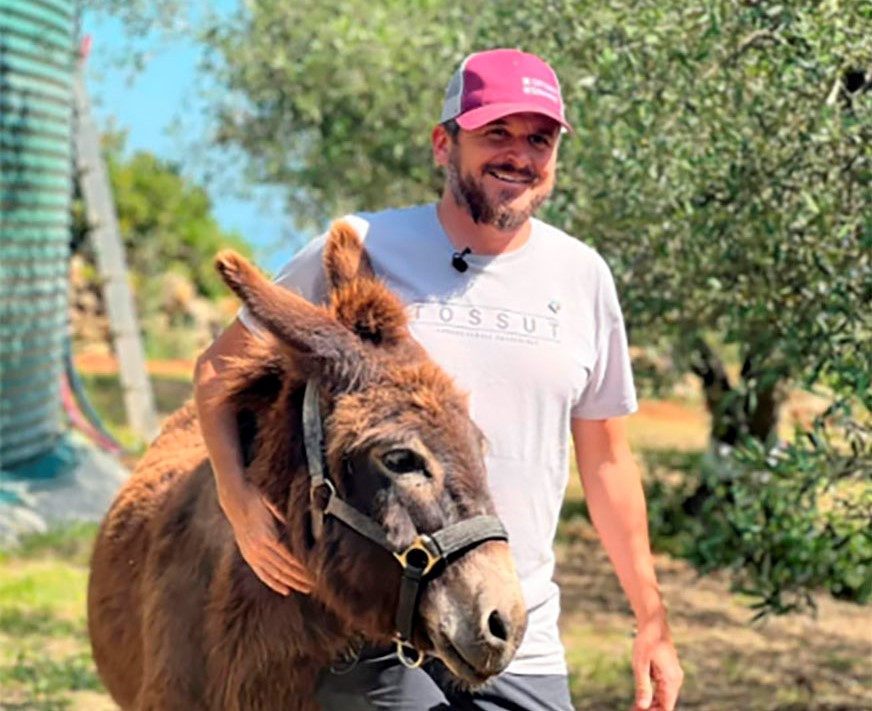
In Espores we spoke with Héctor Carrió, the founder of the agroecological and sustainable company. A project against the current that has expanded its production to olive growing and viticulture of some Mediterranean varieties. A company that aims to recover the heritage of the Alicante mountains.
In the steep and mountainous area of Els Pouets, in Pedreguer, 400 metres above sea level and in the heart of the Montaña Grande, the agro-ecological farm of Tossut stands out, a project that has gone against the tide since its beginnings. Under the philosophy of sustainable and agro-ecological production, it also seeks to recover the agricultural heritage of the mountains of Alicante and the Marina Alta, which is almost extinct. All of this, while maintaining the objective of producing quality products that transport you to the land where they were born.
At the helm is Héctor Carrió, an agronomist by training and an agro-ecological winegrower at heart, who after 17 years in Catalonia, seeing first-hand how many companies revalued, transformed and sold their products, decided to return to the lands of his ancestors and consolidate the project that had been in his head for so long. That is how Tossut was born, and it is only yesterday, after winning several awards, including the award for organic oil in the Valencia Region in the 2021 – 2022 campaign, that it is at its best.
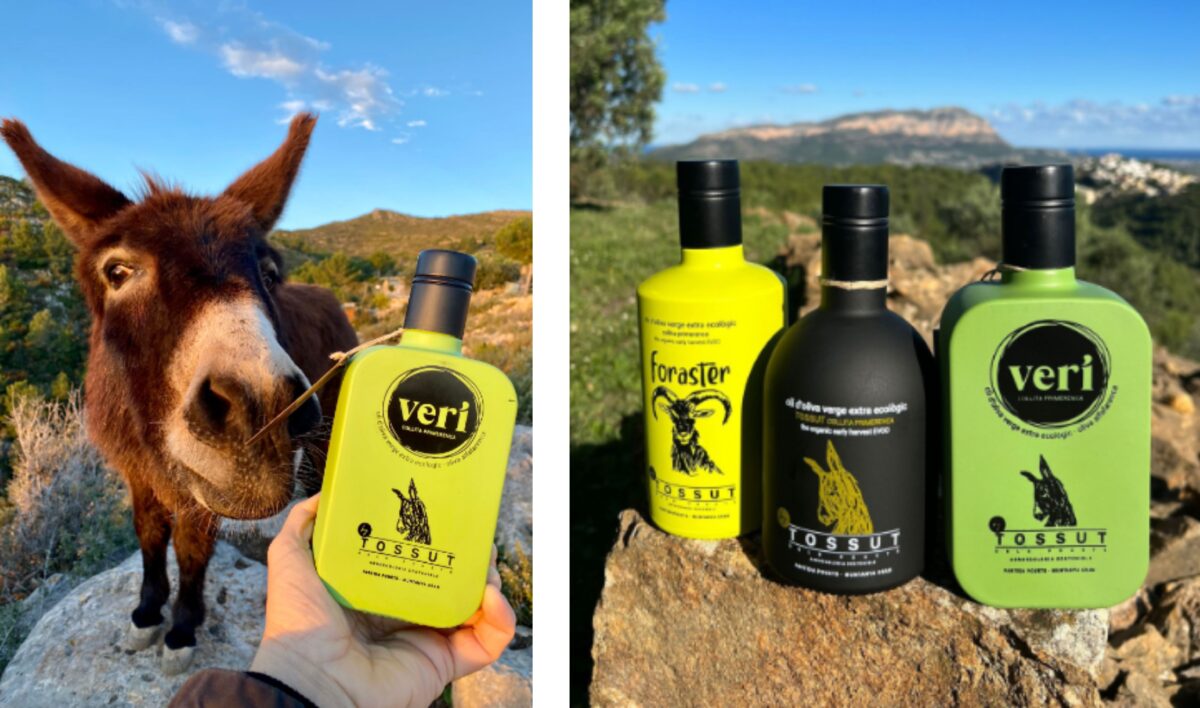
The history of Tossut
The frenetic and urban life that the family led in Catalonia, together with the enormous workload and the to-and-fro commuting between the foundation where Héctor worked and the family home, made him think about the possibility of a change of scenery. “It was time for a change of life, as we had a three-year-old daughter and were expecting a baby boy. It also opened up the possibility of winning and recovering this hut and the olive trees”, says Héctor, who also felt that it was time to make a change on a professional level, as with his career and subsequent recognition, he could afford to set up a consultancy with his work experience and training.
Héctor had travelled a lot in Catalonia and had seen different similar projects in which product valorisation prevailed. There he saw how some companies were family-run and made quality products. “They were products that above all had roots or a history behind them. And that made me think that I could also do something like that, because we had the place to do it and we could also create quality products”.
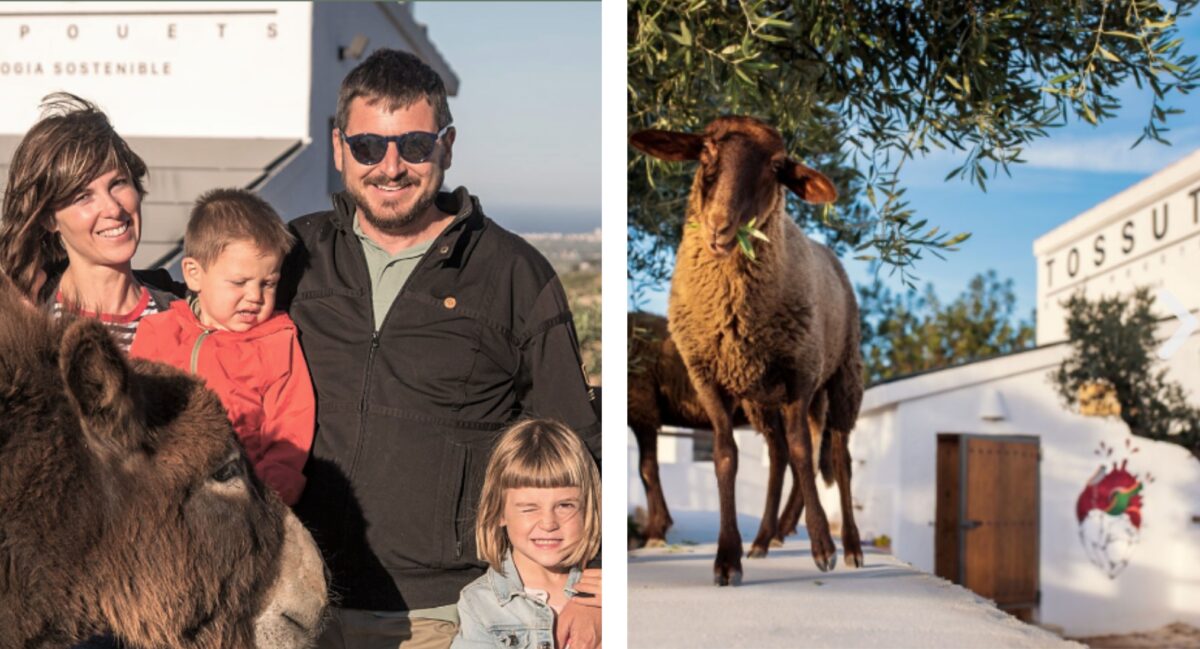
At that time, Tossut was still unnamed land, which they had been cultivating and which they gradually began to see its potential profitability. “Part of what gave me the inertia to return was the project that my father started. The olive trees that we had been planting over the last 25 years, for fun or as a hobby, and which we had been growing with increasing productivity. Until we could no longer consume what we harvested at home because we had more and more, and so we began to sell it”, explains Héctor. “After that, I made some necessary investments, such as acquiring more properties nearby and recovering them agriculturally. They were old cultivated fields and I have been tilling them, recovering them and giving them that transformation and that agricultural value that gives importance to our environment and our landscape”.
The product Tossut
The Els Pouets estate extends over three hectares full of vineyards and olive trees that make up a unique landscape. A land on which its skeleton of terraces with dry stone margins give the master touch to the essence of this ancestral agriculture. In it, the family managed to have one of its products, specifically Tossut dels Pouets Collita Tempenca, elevate Pedreguer by obtaining recognition for being the best Organic Extra Virgin Olive Oil (EVOO) in the Valencian Community for the 2021-2022 campaign. “The awards have obviously increased sales as well as opening many doors. They made it easier for us to replicate the message to potential buyers other than the ones we already had”.
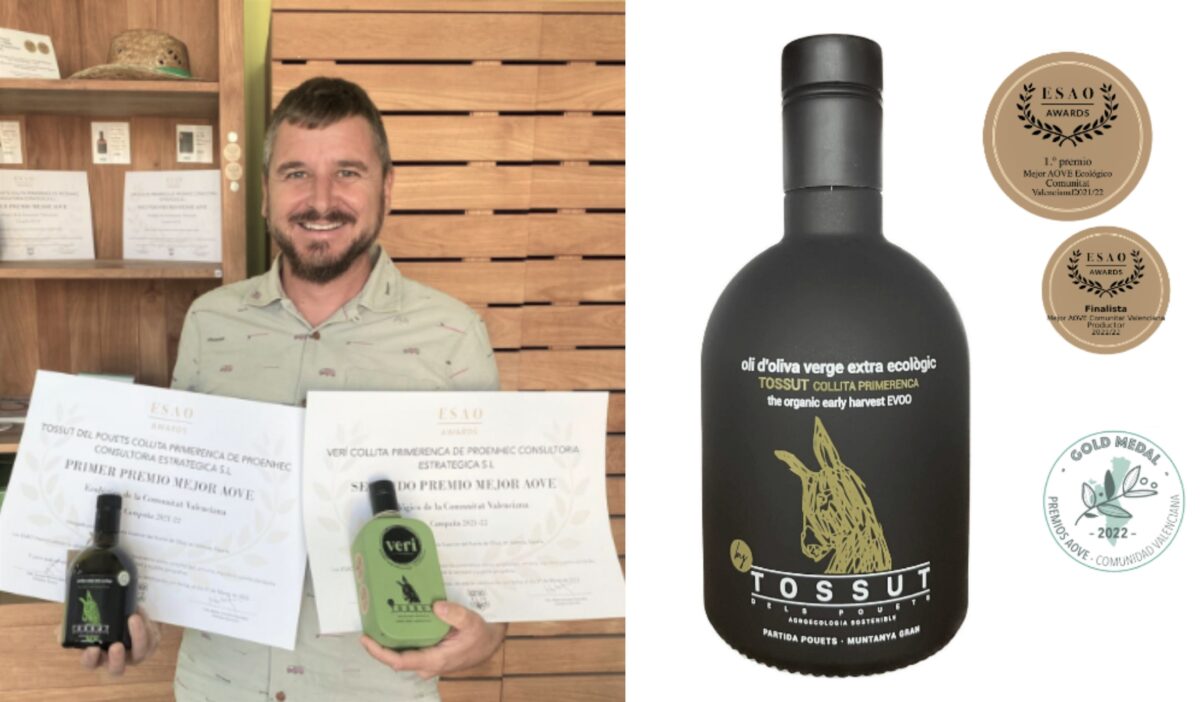
One of the characteristics of Tossut is that they produce a type of sustainable ecological agriculture, which in recent years has become increasingly popular in society. “People have become more and more aware, it’s no longer just foreigners who are looking for this type of ecological agriculture”, says the owner of Tossut, who also argues that agro-ecological agriculture is very good for people, as it doesn’t use pesticides, as well as being sustainable, which allows the landscape of this type of agricultural mosaic export, so characteristic of the Mediterranean mountains, to be maintained. “In our case, it is very important for society to consume this type of product, because it helps us to maintain the landscape of the agricultural forest mosaic, as well as avoiding or preventing fires in some way”.
Tossut is also a company that advocates local products, as the benefits are enormous for the localities and the economy of enclaves such as the Marina Alta. “For me, adding the word ‘proximity’ is fundamental. It’s the strategy that in a way gives continuity. The active purchasing power is used to buy products that are good for those who consume them, and sustainable products that help to maintain the agricultural environment. And that’s why proximity is the key. It’s maintaining your immediate environment and therefore giving dynamism and jobs to the people around you. It’s all very well buying organic kiwi from South Africa, but for me it makes no sense”.
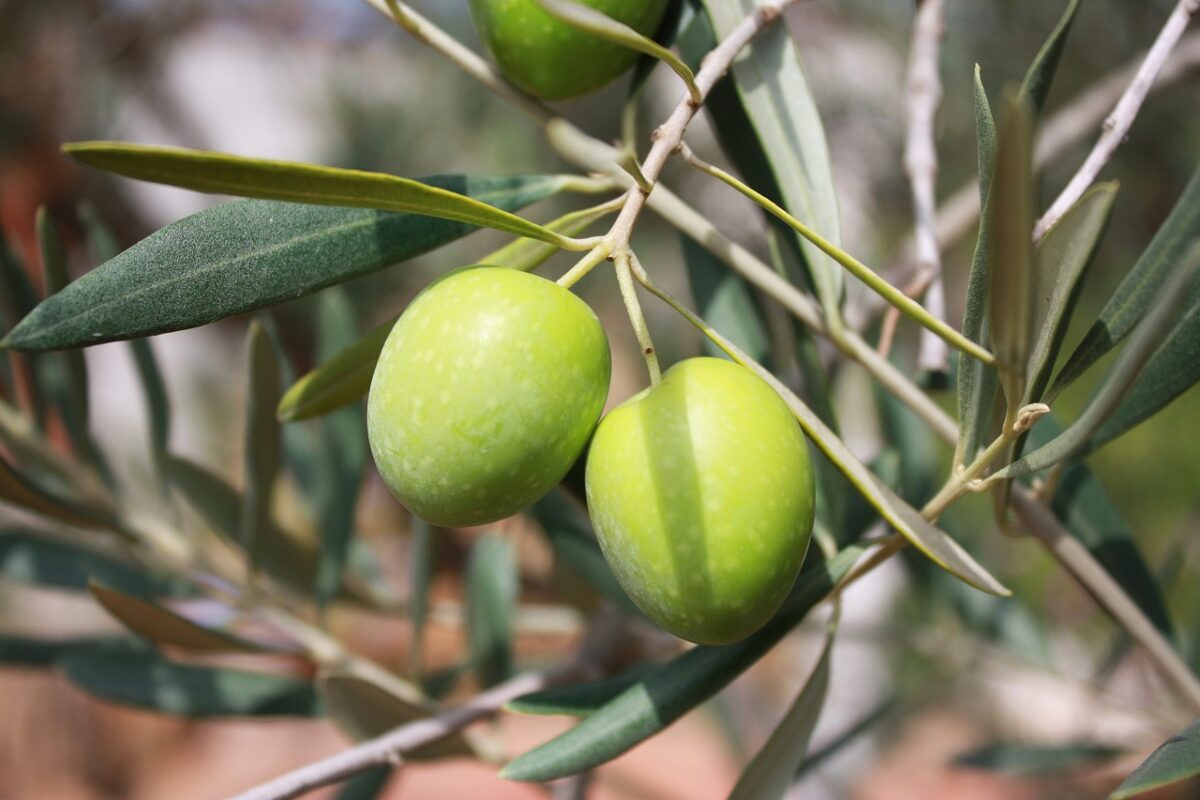
Agro-ecological and organic in equal parts
Tossut manages to create a space where a sustainable agro-ecosystem reigns, which allows them to obtain olives of excellent quality. Nowadays, sustainable agriculture is a phenomenon that is spreading throughout many areas of the Community, but one of the differences of this company is that their home is located within their production fields. They live next to the olive trees, in the heart of the mountains. A life project in the middle of nature that makes the production of the product unique.
“Our agro-ecological agriculture always seeks sustainability in all areas. It must be economically viable and sustainable and self-supporting. It must be able to provide for itself in order to continue to maintain the agricultural heritage that we have”. This is a challenge which is combined with recovering the agricultural heritage of the mountains of Alicante, with dry stone margins, slopes, and adapting the farms taking into account the environmental impact assessments.
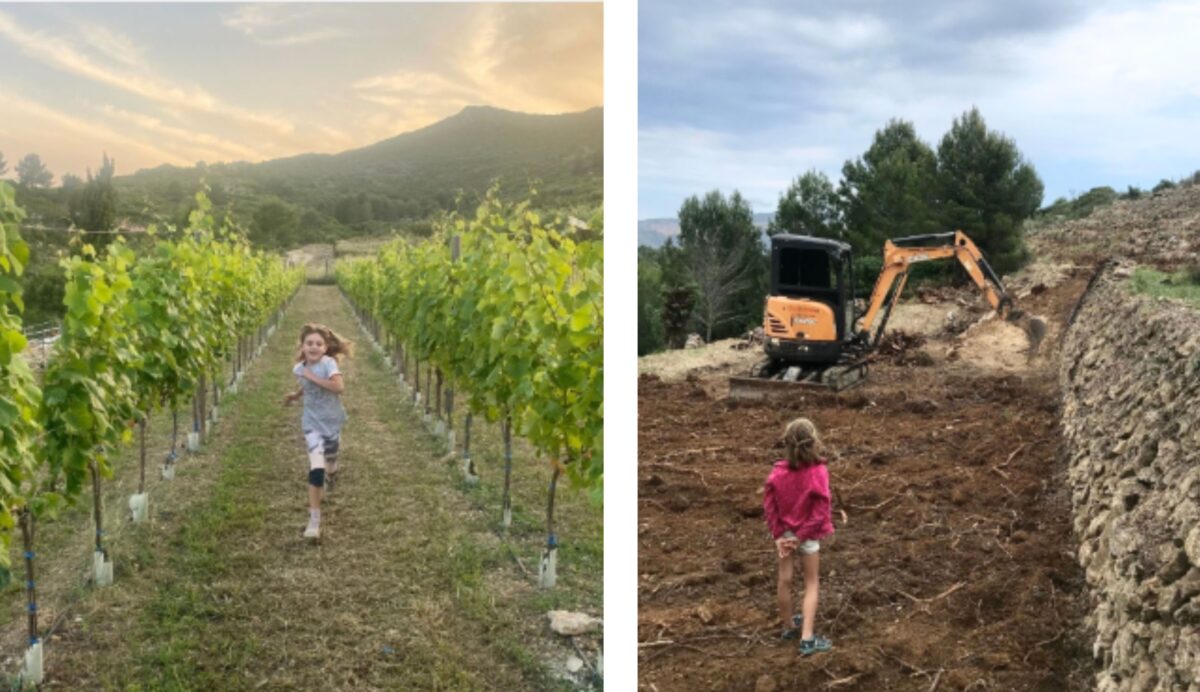
Tossut is a company recognised for having the Organic Agriculture Committee certificate, which recognises the work carried out through sustainable practices. However, they have gone a step further and have become an agro-ecological company. “We also focus on the physical aspect, on improving the soil to prevent erosion, to maintain its fertility over time, to incorporate organic matter from the grass itself, and so on.”
Among their agro-ecological practices are the birds’ nests they have on the farm, the cages or nests for bats, which are animals that eat a lot of olive tree flies, or making the pasture with a roller that maintains the vegetation, especially in springtime.
The future of Tossut
The product has been very well received by local buyers, despite not being made to be sold to people in large quantities. “It is not a product that comes in carafes as it has been done all our lives”, says Héctor, who also said that the people of the village like the company very much, because it means that the mountain is being given a new lease of life. “It’s a place that had its back to the village and that seemed to have been abandoned because of its low productivity, and this is a project that gives notoriety to a very beautiful place in Pedreguer, which is an unknown Pedreguer”.
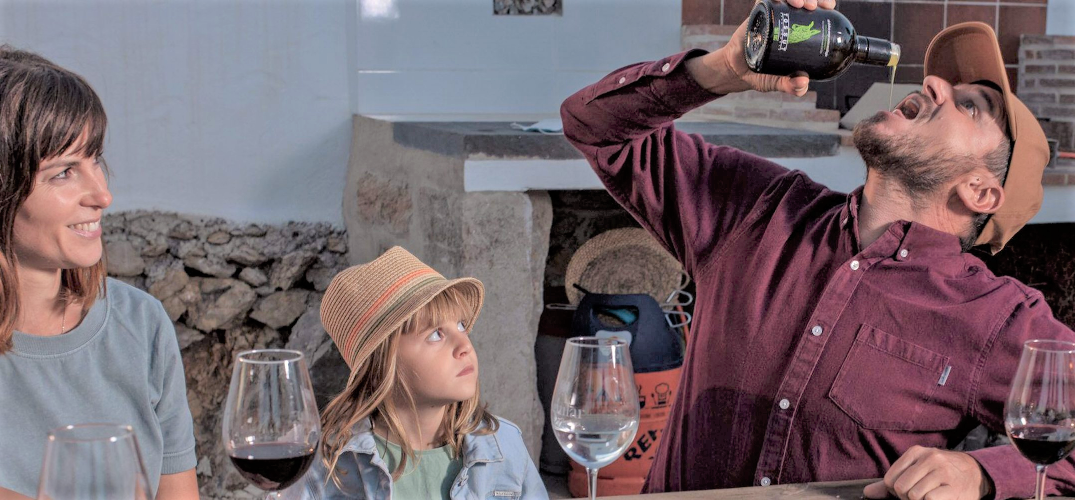
Héctor does not think too much about the future of Tossut and prefers to enjoy the day to day and watch it grow until he finds a break-even point for the maintenance of the farm itself, in a sustainable way. “The project has given very good results. We have expanded the farms and we are cultivating these new extensions with vines. We have diversified our productivity, which before was only olive growing, and now we also have viticulture. We are currently making products with these vines, which are our indigenous Mediterranean varieties”.
After expanding two plots and increasing productivity with the olive trees, they are now looking to establish themselves with these new developments and see how the project goes. “We want to grow in a sustainable way, in the same way as we do our production. This is our philosophy, to maintain our agricultural heritage and our mountain agriculture, which is so complex and so simple”.






